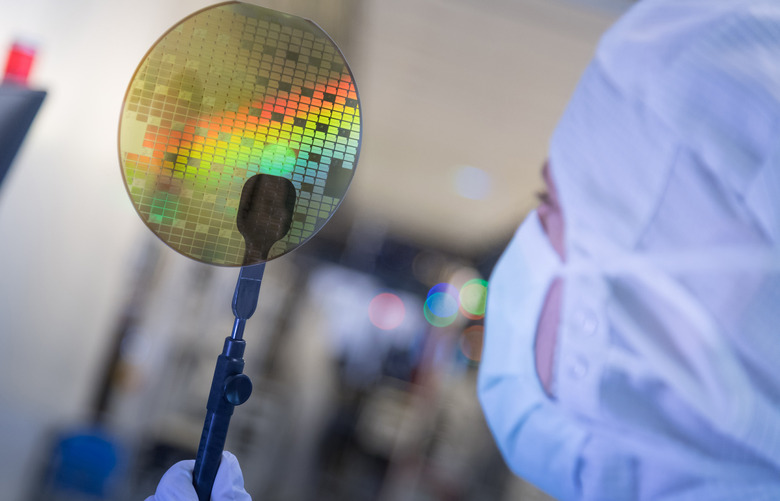A Tiny Chip Change Could Coax More Range From Electric Cars
Better battery tech isn't the only way to boost electric car range, one big automotive tech provider is betting, with a shake-up in chip material potentially unlocking a 6-percent increase in range. Bosch plans to kick off production of silicon carbide semiconductors from 2020, taking advantage of more efficient electrical conductivity to make power electronics in EVs and hybrids less wasteful on the road.
It's easy to oversimplify what gives an electric vehicle its overall range, and assume it all comes down to how big a battery pack you're carrying. As we've seen with recent EV launches over the past 18 months, however, there's far more to it than battery capacity alone: cars with similarly sized batteries can have wildly different ranges out in the real world.

Power management is one of the most important elements contributing to range, and specifically things like how efficiently the power stored in the batteries is transferred to the motors. One of the most wasteful side-effects of that process is heat. Batteries, the electronics responsible for power control and transfer, and the motors themselves all convert some energy to heat rather than miles traveled.
It's those electronics which act as the "command center" of electrified vehicle power control that Bosch has set its sights on. A new silicon carbide (SiC) semiconductor design has better electrical conductivity than existing chips, thanks to more carbon atoms being included in their manufacturing. That means the electronics can achieve higher switching frequencies while also losing less power in the form of heat.
Indeed, Bosch claims, 50-percent less energy is wasted as heat. With the same size of battery in your electric car, the company says, you could go 6-percent further. In a vehicle rated for 250 miles, for example, that could mean 15 extra miles of driving were the automaker to use SiC semiconductors instead.

As an alternative to addressing range anxiety, another possibility is cutting cost. With greater efficiency to play with, automakers could choose to use smaller – and thus cheaper – batteries, without sacrificing range from earlier models. Either way, less cooling would be required overall, also helping lower the car's bill of materials.
Bosch is in the midst of building new facilities at its wafer fab in Dresden, Germany, where it'll apparently take up to fourteen weeks to turn a traditional silicon disc into semiconductors. There, it will begin using 300 millimeter discs, larger – and thus more economical – than the 150 mm and 200 mm discs used at its existing Reutlingen wafer fab. SiC products, though, will initially only be produced at Reutlingen – on 150 mm discs – though not just for automotive applications. The greater efficiencies are also likely to be beneficial for the IoT, smart cities, and more, Bosch argues.
When we might be able to expect SiC semiconductors to show up in electric cars, meanwhile, is unclear, given the typically lengthy timescales of new vehicle development. Still, with Bosch a well-placed Tier 1 supplier of automakers already, SiC is at least well-placed to start squeezing out regular silicon semiconductors in tomorrow's cars.
[Updated to reflect production beginning in Reutlingen on 150 mm processes]
